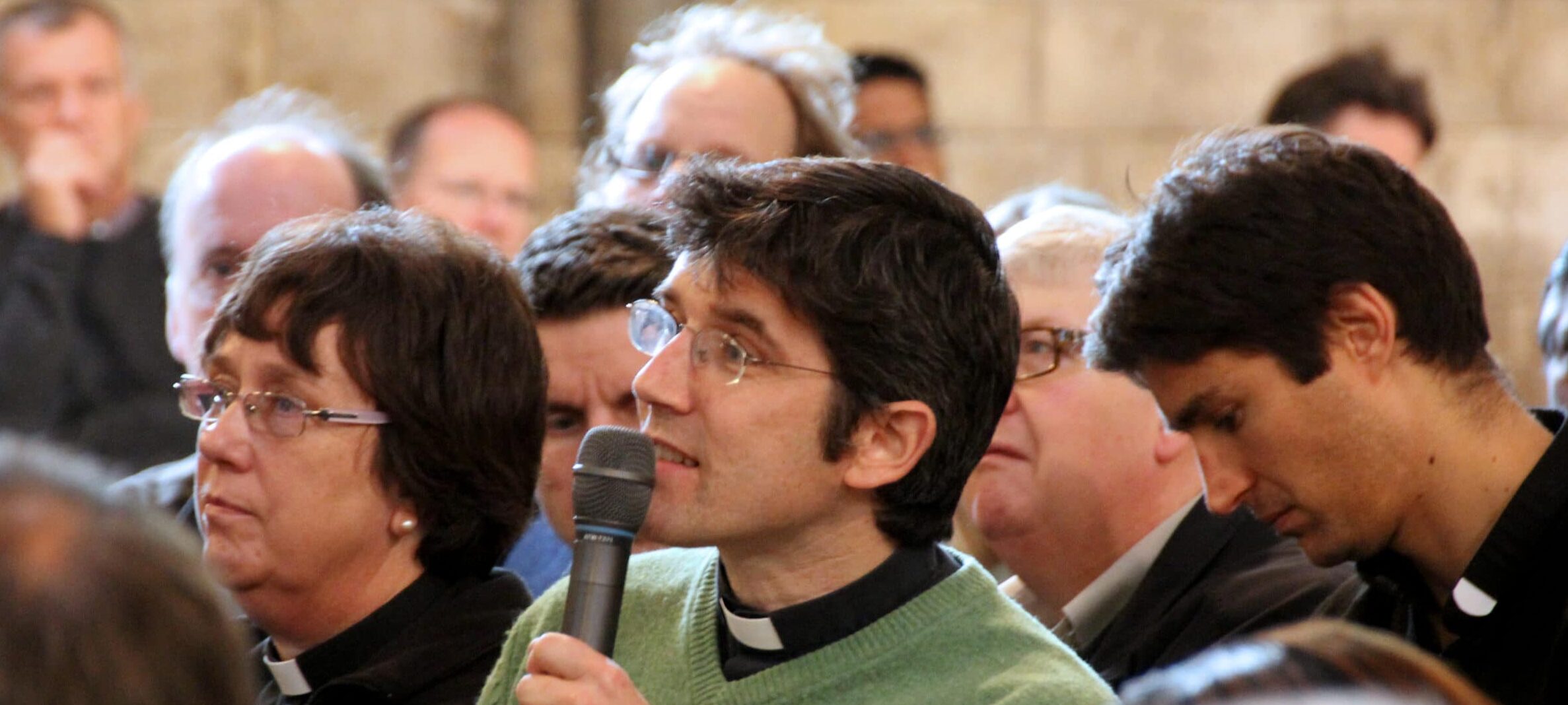A variety of training pathways are available to those preparing for ordained ministry. A candidate’s Director of Ordinands will discuss in detail with them the possible training options during the course of their work together in order to discern the most suitable pathway for the candidate. The final decision on training pathways rests with the Diocesan Bishop, taking into account the advice of the Diocesan Director of Ordinands (DDO).
The length of time in training depends on various factors. However, training normally takes a minimum of two years and up to three years.
After ordination, a period of three or four years is served in a parish as a curate, where ministerial training continues. In order to gain the roundest possible experience as a resource for the Church, curates are required to serve in a different parish from their “sending” parish.
Types of candidates
Ordinands are sponsored as either incumbent-focus or assistant-focus candidates.
Incumbent-focus ministry
Candidates sponsored for incumbent-focus ministry are required to fulfil a wider range of formation criteria during training, and may be offering for stipendiary or self-supporting ministry.
Stipendiary ordinands can train in a residential institution (to which they would move with their family, where appropriate, for the duration of training), or on a local, context-based training pathway, such as at St Mellitus College or St Augustine’s College, or on a mixed-mode course (which combines elements of both residential and context-based training) currently offered by institutions such as Wycliffe Hall and Ripon College Cuddesdon.
Assistant-focus ministry
Candidates for assistant-focus ministry are normally self-supporting (non-stipendiary) and part-time, often continuing in secular employment and remaining in their current homes.
Assistant-focus ordinands are normally expected to train at St Augustine’s College of Theology, the Diocese’s local training partner, on a part-time basis over three years.
Those sponsored for assistant ministry would not usually take up an incumbent (or equivalent) post. If they wanted to transfer in due course to an incumbent-level post, this would normally need to be discerned by the Ministry Division’s Candidates’ Panel.
Frequently asked questions
Where will I serve my curacy?
Please note that incumbent-focus ministry is nationally deployable. As Southwark Diocese is blessed with a large number of ordinands, we are unable unfortunately to guarantee curacies in the Diocese for all our ordinands offering for stipendiary ministry. Candidates offering for stipendiary ministry would therefore need to be prepared for the possibility of moving after training to a different part of the country for a curacy post.
All ordinands training locally, whether for incumbent- or assistant-focus ministry, would normally be expected to undertake a training placement somewhere other than their “sending”/home church in order to get as wide an experience as possible of ministry within the Church of England.
Will I receive financial support?
The Church of England Ministry Division covers the cost of full-time residential, context-based and mixed-mode students’ total tuition fees as well as a maintenance grant, covering the term-time accommodation costs for an unmarried student and the costs of term-time meals and study space for married students.
Means-tested vocation maintenance grants for unmarried ordinands and family maintenance grants for married ordinands are provided by the Diocese. Ordinands are also able to apply for modest hardship grants from the Church Times Train-A-Priest (TAP) Fund.
Are there age limits?
Yes. For stipendiary ministry, candidates must be 57 years or younger at the point of entering training if doing a three-year course; or 58 years or younger at the point of entering training if doing a two-year course.
For non-stipendiary ministry, candidates must be 62 years or younger at the point of entering training if doing a three-year course; or 63 years or younger at the point of entering training if doing a two-year course.
Please bear in mind that the process of discernment takes between one and two years to complete. For some candidates this process will take longer and, if this proves to be the case, the above age limits will still apply.
If you have queries about any of the points raised on this page, please use the contact details below.



